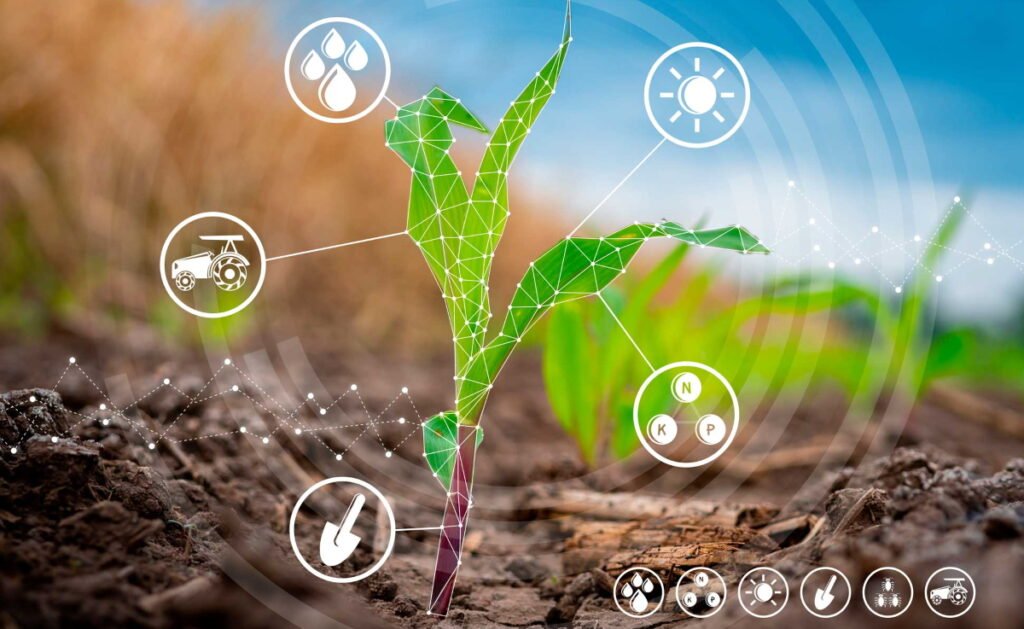Introduction

agricultural technologies: Universities and research centers play a crucial role in advancing agricultural technologies that enhance productivity, sustainability, and food security. As the agricultural sector faces increasing challenges such as climate change, resource scarcity, and growing global populations, the need for innovative solutions has never been more critical. These institutions serve as hubs for research, development, and collaboration, bridging the gap between scientific discovery and practical application in the field. This article examines how universities and research centers contribute to agricultural technology development, highlighting key initiatives and partnerships that drive innovation.
Key Contributions of Universities and Research Centers

1. Research and Innovation
Universities and research centers are at the forefront of agricultural research, focusing on developing new technologies and practices.
- Applied Research: Institutions like the Agricultural Research Center in Egypt conduct applied research that addresses local Agricultural Technologies challenges, contributing to advancements in crop yield, pest management, and sustainable practices 7.
- Innovative Solutions: Research initiatives such as the Agri-Tech Research Centre at Harper Adams University focus on precision farming, automation, and sustainable agriculture technologies to enhance food security 4.
2. Collaboration with Industry
Partnerships between academic institutions and industry stakeholders are essential for translating research into practical applications.
- Knowledge Transfer: Centers like the Agricultural Technologies and Innovation Center at the University of Nairobi facilitate collaboration between academia and farmers, providing access to knowledge and resources that boost agricultural productivity 1.
- Commercialization: Research centers often work with agribusinesses to commercialize new technologies, ensuring that innovations reach farmers effectively.
3. Training and Education
Universities play a vital role in educating the next generation of agricultural professionals.
- Curriculum Development: Institutions develop curricula that incorporate the latest research findings, equipping students with the skills needed to address current agricultural challenges.
- Extension Services: Many universities offer extension programs that provide training to farmers on new technologies and best practices, promoting knowledge dissemination within communities.
4. Focus on Sustainability
Sustainable agriculture is a key focus area for many research institutions.
- Environmental Impact Studies: Research centers assess the environmental impacts of various agricultural practices, contributing to the development of sustainable farming methods that minimize ecological footprints.
- Climate Resilience: Programs like those at the Agricultural Research Technology and Innovation Center (ARTIC) emphasize green technology solutions that help farmers adapt to climate change while improving productivity 2.
5. Funding and Support for Research Projects
Many universities receive funding from government agencies, NGOs, and private sectors to support agricultural research initiatives.
- Grants and Initiatives: Large-scale projects like Agritech in Italy involve multiple universities and research centers working together to develop new technologies for sustainable agriculture 5.
- Resource Allocation: Funding allows institutions to invest in advanced facilities and equipment necessary for cutting-edge research.
Conclusion
Universities and research centers are integral to developing new agricultural technologies that address pressing global challenges. Through their commitment to research, collaboration with industry partners, education of future leaders, focus on sustainability, and support for innovative projects, these institutions drive advancements that enhance agricultural productivity and resilience. As the agricultural landscape continues to evolve, fostering strong connections between academia and the farming community will be essential for achieving sustainable growth in food production.
Engage with local universities or research centers—consider partnerships that leverage their expertise to drive innovation in your agricultural practices!
Q&A Section
Q: How do universities contribute to agricultural technology development?
A: Universities conduct applied research, collaborate with industry partners, educate future professionals, focus on sustainability initiatives, and secure funding for innovative projects.
Q: What role do partnerships play in advancing agricultural technologies?
A: Partnerships between universities and industry stakeholders facilitate knowledge transfer, commercialization of innovations, and provide practical solutions tailored to farmers’ needs.
Q: Why is sustainability important in agricultural research?
A: Sustainable practices help minimize environmental impacts while ensuring long-term productivity and resilience against climate change challenges.
Resources
- Agricultural Technology and Innovation Center – University of Nairobi
- Agricultural Research Technology and Innovation Center – USeP
- Agri-Tech Research Centre – Harper Adams University
- AGRITECH – National Research Centre for Agricultural Technologies
- Research Programs – College of Agricultural Sciences






